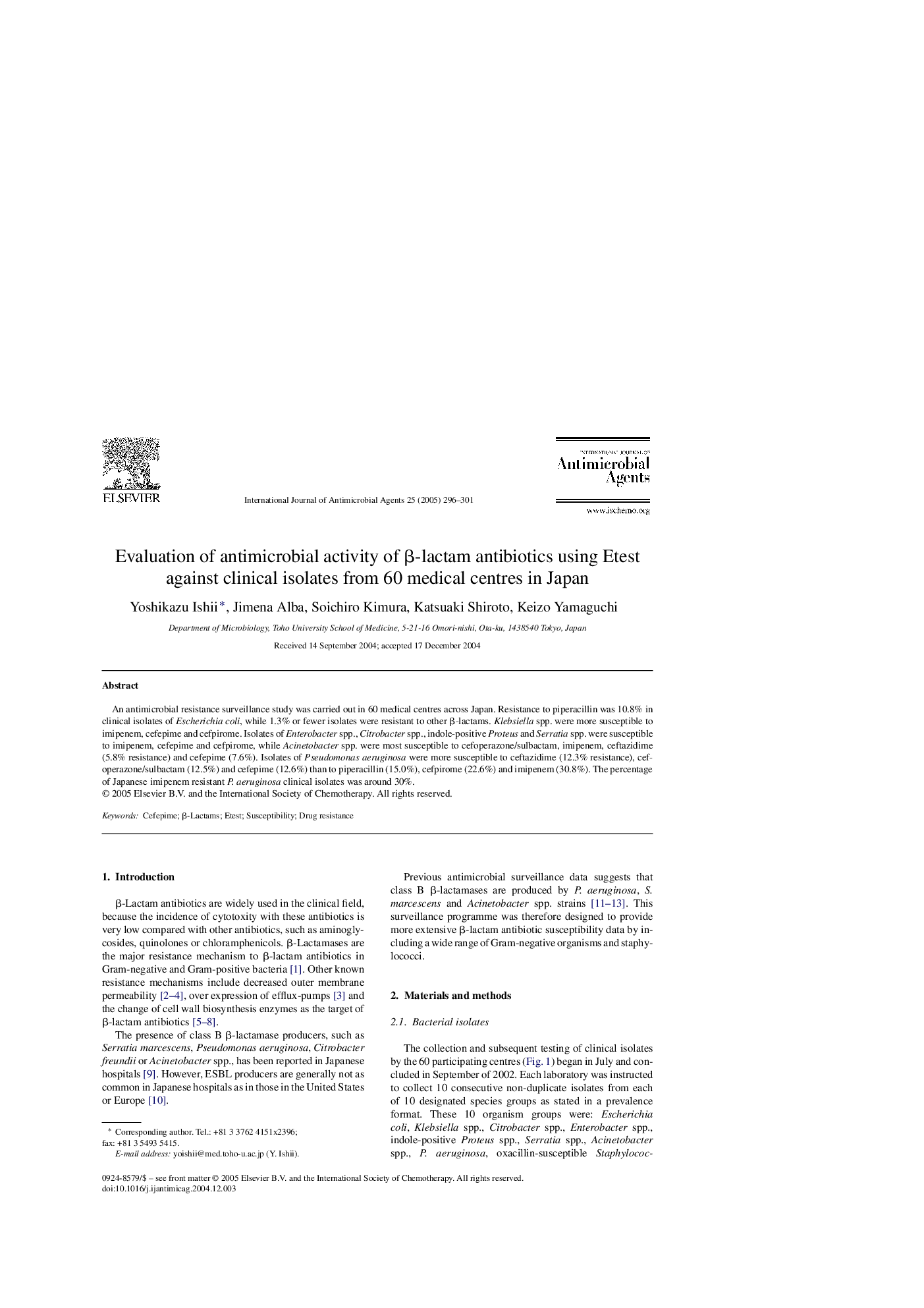| Article ID | Journal | Published Year | Pages | File Type |
|---|---|---|---|---|
| 10027954 | International Journal of Antimicrobial Agents | 2005 | 6 Pages |
Abstract
An antimicrobial resistance surveillance study was carried out in 60 medical centres across Japan. Resistance to piperacillin was 10.8% in clinical isolates of Escherichia coli, while 1.3% or fewer isolates were resistant to other β-lactams. Klebsiella spp. were more susceptible to imipenem, cefepime and cefpirome. Isolates of Enterobacter spp., Citrobacter spp., indole-positive Proteus and Serratia spp. were susceptible to imipenem, cefepime and cefpirome, while Acinetobacter spp. were most susceptible to cefoperazone/sulbactam, imipenem, ceftazidime (5.8% resistance) and cefepime (7.6%). Isolates of Pseudomonas aeruginosa were more susceptible to ceftazidime (12.3% resistance), cefoperazone/sulbactam (12.5%) and cefepime (12.6%) than to piperacillin (15.0%), cefpirome (22.6%) and imipenem (30.8%). The percentage of Japanese imipenem resistant P. aeruginosa clinical isolates was around 30%.
Related Topics
Life Sciences
Immunology and Microbiology
Applied Microbiology and Biotechnology
Authors
Yoshikazu Ishii, Jimena Alba, Soichiro Kimura, Katsuaki Shiroto, Keizo Yamaguchi,
